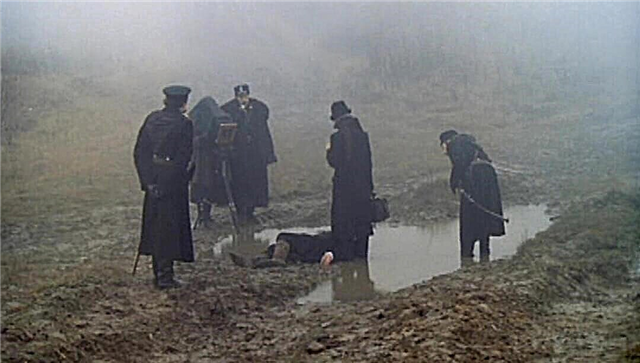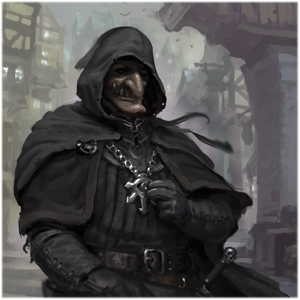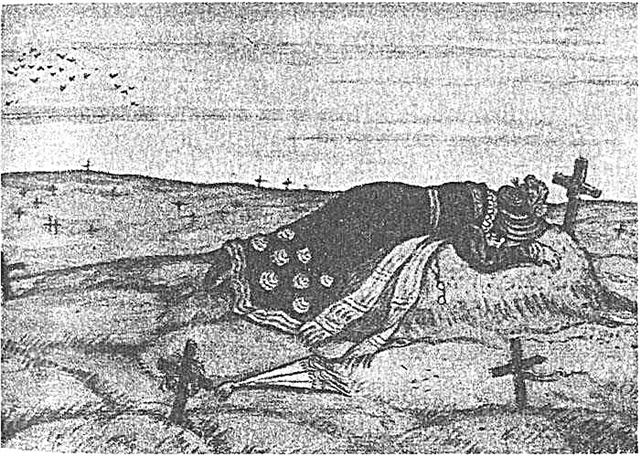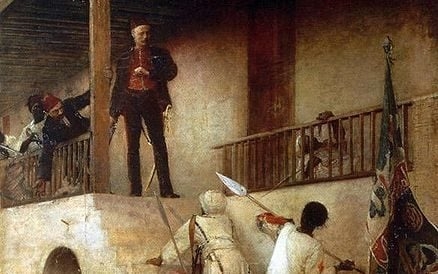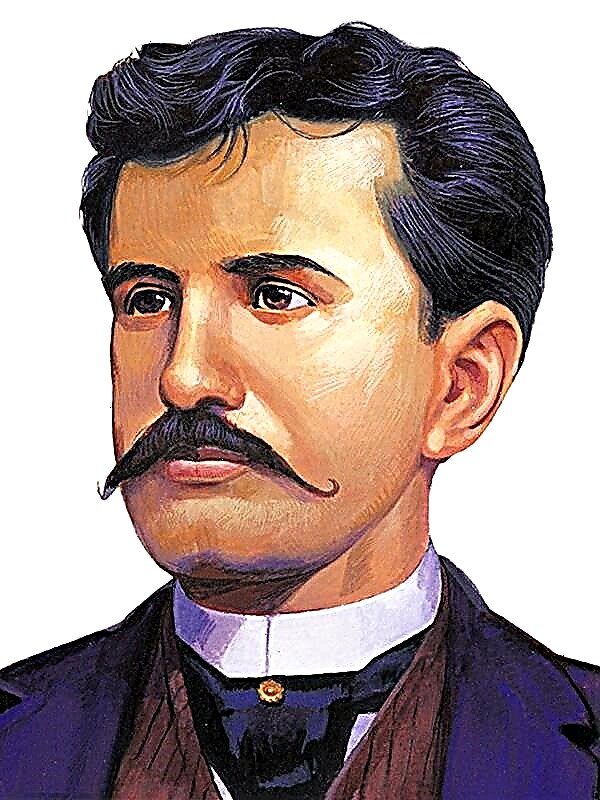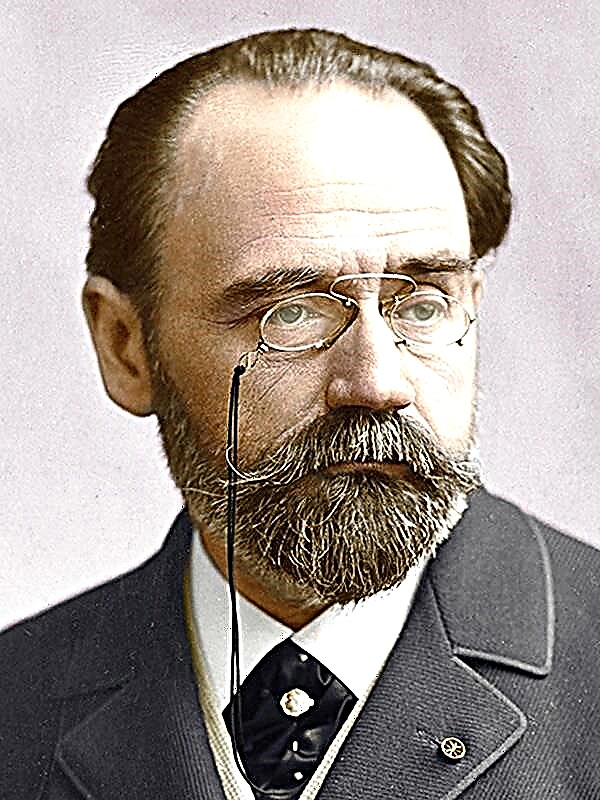This is a tragedy with a happy ending. At drama competitions in Athens, there was a custom: each poet presented a “trilogy”, three tragedies, sometimes even picking up each other on topics (like Aeschylus), and after them, to defuse a gloomy mood, a “satire drama”, where the characters and action were also of myths, but the choir certainly consisted of cheerful satyrs, goat-footed and tailed companions of the god of wine Dionysus; accordingly, the plot for her was chosen funny and fabulous. But the chorus of satyrs could not be adapted to any myth; and now the poet Euripides tried to make the final drama with a fairy tale plot and a happy ending, but without any satyrs. This was Alkestida.
The fairy tale plot here is the struggle of Hercules with Death. The Greeks, like all nations, once imagined that Death is a monstrous demon that comes to a dying man, grabs his soul and carries him to the underworld. Seriously in such a demon for a long time did not believe and told about him not myths, but fairy tales. For example, how the sly Sisyphus took Death by surprise, shackled him in chains and held him captive for a long time, so that people on earth stopped dying, and Zeus himself had to intervene and restore order. Or, as the main hero of Greek myths, the laborer Heracles, once grabbed hand to hand Death, overpowered her and ripped out her soul, which the demon had already carried to hell. It was the soul of the young queen of Alkestis (Alkesta), the wife of King Admet,
Here is how it was. God Apollo quarreled with his father, the Thunderer Zeus, and was punished by him: Zeus ordered him to serve as a shepherd with a mortal man, King Admet, for a whole year. Admet was a good and affectionate master, and Apollo also repaid him kindly. He drank the drunken adamant Moira, the goddesses of fate, measuring the terms of human life, and achieved a miracle for Admet: when Admet comes to die, someone else can die for him, and Admet, he will live his life for this other . Time passed, it was time for Admet to die, and he began to look among his relatives for a man who would agree to accept death in his place. The old father refused, the old mother refused, and only his young wife, Queen Alkestida, agreed. She loved him so much that she was ready to give her life for him, so that he continued to reign with glory, raised their children and remembered her.
From this begins the tragedy of Euripides. On stage is the god Apollo and the demon of Death. The demon came for the soul of Alcestis; he triumphantly triumphs: abducting a young life is more pleasant than the life of a mature husband. “You triumph early!” - Apollo tells him. “Watch out: soon a man will come here who will overpower you.”
A chorus of locals enters the scene: they are alarmed, they love both the good king and the young queen, they don’t know which gods to pray for death to pass. The imperial servant tells them: there is nothing to help, the last hour has come. Alkestida prepared herself for death, washed herself, dressed in a mortal attire, and prayed to the house gods: “Keep my husband and give my children not untimely death, as I do, but due, on the side of days!” She said goodbye to her marriage bed: “Ah, if another wife comes here, she will not be better than me, but only happier!” She said goodbye to the children, to the servants and to her husband: poor Admet, he remains to live, but is tormented by longing, as if dying. Now they will take her out of the palace to say goodbye to the sunlight. “About grief, grief,” the choir sings. “If you can, Apollo, intercede!”
Alkestida is brought out of the palace, with Admet, with them a little son and daughter. A general cry begins; Alkestida says goodbye to earth and sky, she already heard the splash of the afterlife. She turns to Ad-met: “Here is my last request: do not take another wife, do not take the stepmother to our children, be the protector of our son, give a worthy husband to your daughter!” “I won’t take another wife,” Admet answers her, “I will mourn you for the rest of my days, I will not have any joy or songs in my house, and you will appear to me even in dreams and meet me in the underworld when I die!” Oh, why am I not Orpheus, with a song, begging for his beloved from the underground king! ” The speeches of Alkestida are getting shorter, she is silent, she is dead. The choir sings the deceased parting song and promises her eternal glory between the living.
It was then that Hercules appeared. He goes north, he is assigned another forced feat: to deal with the cruel king who kills visiting guests and feeds them the meat of his mares-cannibals. King Admet is his friend; he wanted to rest and eat in his house; but there is sadness, sadness, mourning in the house — maybe he should look for another shelter? “No,” Admet tells him, “do not think about the bad, leave me my worries; and my slaves will feed and lay you. ” “What are you, king,” the choir asks, “is it enough to receive and treat the guests by burying such a wife?” “But is it enough,” says Admet, “to burden friends with your grief?” Good for good: the guest is always holy. ” The choir sings about the generosity of King Admet, and how good the gods are to him, and how kind he is to friends.
Alkestid is buried. There is a dispute in every tragedy - a dispute erupts over her body as well. Admet's old father comes out to say goodbye to the dead and says touching words to her. Here Admet loses her temper: “You did not want to die for me - it means that you are to blame for her death! He shouts. “And if not for her, you would have been to blame for my death!” I’m not your son anymore. ” “The death sentence was yours,” the father replies, “you did not want to die; so do not reproach me either that I do not want to die, and be ashamed of a wife whom you did not spare. " With curses to each other, father and son diverge.
And Hercules, knowing nothing, feasts behind the scene; among the Greeks, he was always considered not only a strong man, but also a glutton. The slave complains to the audience: he wants to cry about the good queen, and he must serve the stranger with a smile. "Why are you so gloomy? Hercules asks him. “Life is short, tomorrow is unknown; let's rejoice while we are alive.” Here the slave does not stand up and tells the guest everything as it is. Hercules is shocked - and the devotion of the queen to her husband, and the nobility of the king before a friend. "Where is Alkestida buried?" Servant points. “Take heart, heart,” says Hercules, “I fought with the living, now I go out to Death itself and rescue my wife for a friend even from the underworld.”
While Hercules is not there, on the stage - crying. Admet is no longer suffering about the deceased — but about himself: “The grief for her was over, the eternal glory began for her. And I? that now life is for me, if anyone can tell me in my face: here’s a coward, he was frightened of honest death, he preferred a shameful life! ” The choir sadly consoles him: such is fate, but they do not argue with fate.
Hercules returns, followed by a silent woman under the covers. Hercules blames Admet: “You are my friend, and you withhold your grief from me?” be ashamed! God is your judge, and I have a request for you. Now I had a hard fight and fist fight, I won, and this woman was my reward. I’m going north to serve my service, and you, please, shelter her in your palace: if you want to be a slave, but if you want, when your anguish passes, you will also be given a new wife. ” “Do not say this: there is no end to my anguish, and it hurts me to look at this woman: by her height and article, she reminds me of Alkestid. Do not hurt my soul! ” “I am your friend, do I really want you to be ill?” Take her hand. Now look! ” And Hercules pulls the veil from his companion. “Is it Alcestis? alive? not a ghost? You saved her! Stay! Share my joy! ” “No, the business is waiting. And you be kind and righteous, make sacrifices to the gods of heaven and underground, and then the mortal spell will fall from her, and she will speak and will be yours again. ” - "I'm happy!" - exclaims Admet, stretching out his arms to the sun, and the choir ends the tragedy with the words: "... The paths of the gods that are unknown to us are unrealistic and impossible for them to be possible: we saw it."


